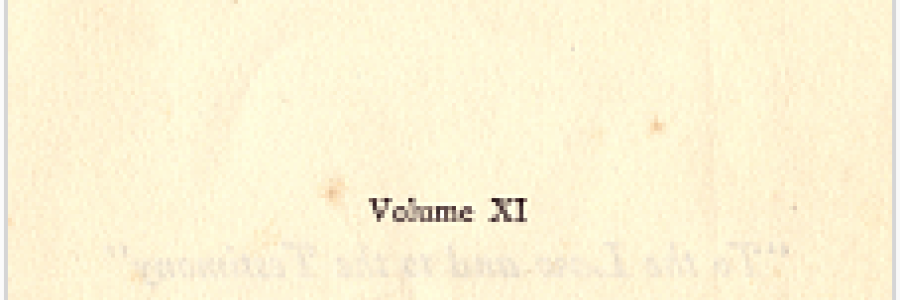Rome, the Antagonist of the Nation
CHAPTER VII — Rome, the Antagonist of the Nation
BY REV. J. M. FOSTER, BOSTON, MASSACHUSETTS
The Roman Catholic Church, both in Scriptures and in Christian history, figures as a politico-ecclesiastical system, the essential and deadly foe of civil and religious liberty, the hoary-headed antagonist of both Church and State. John Milton said: “Popery is a double thing to deal with, and claims a two-fold power, ecclesiastical and political, both usurped, and one supporting the other.” Let us consider a few undeniable facts.
Discussion
Is Romanism Christianity?
CHAPTER VI — IS ROMANISM CHRISTIANITY?
BY T. W. MEDHURST, GLASGOW, SCOTLAND
I am aware that, if I undertake to prove that Romanism is not Christianity, I must expect to be called “bigoted, harsh, uncharitable.” Nevertheless I am not daunted; for I believe that on a right understanding of this subject depends the salvation of millions.
One reason why Popery has of late gained so much power in Great Britain and Ireland, and is gaining power still, is that many Protestants look on it now as a form of true Christianity; and think that, on that account, notwithstanding great errors, it ought to be treated very tenderly. Many suppose that at the time of the Reformation, it was reformed, and that it is now much nearer the truth than it was before that time. It is still, however, the same; and, if examined, will be found to be so different from, and so hostile to, real Christianity, that it is not, in fact, Christianity at all.
Discussion
Cardinal Pell: Vatican treasurer denies Australia sex offences
Body
Discussion
Theology Thursday - The Council of Trent on Original Sin
Following the deep division in the church which had resulted from the Protestant Reformation, there was a widespread desire, which grew stronger and was expressed in a variety of ways, for an ecumenical council. Its aim would be to reject errors against faith, add strength to the official teaching, restore the unity of the church, and reform the standards of the Roman curia and of church discipline.1
FIFTH SESSION, held June 17, 1546.
Decree Concerning Original Sin2
That our Catholic faith, without which it is impossible to please God, may, errors being purged away, continue in its own perfect and spotless integrity, and that the Christian people may not be carried about with every wind of doctrine; whereas that old serpent, the perpetual enemy of mankind, amongst the very many evils with which the Church of God is in these our times troubled, has also stirred up not only new, but even old, dissensions touching original sin, and the remedy thereof; the sacred and holy, œcumenical and general Synod of Trent,—lawfully assembled in the Holy Ghost, the three same legates of the Apostolic See presiding therein,—wishing now to come to the reclaiming of the erring, and the confirming of the wavering,—following the testimonies of the sacred Scriptures, of the holy Fathers, of the most approved councils, and the judgment and consent of the Church itself, ordains, confesses, and declares these things touching the said original sin:



Discussion